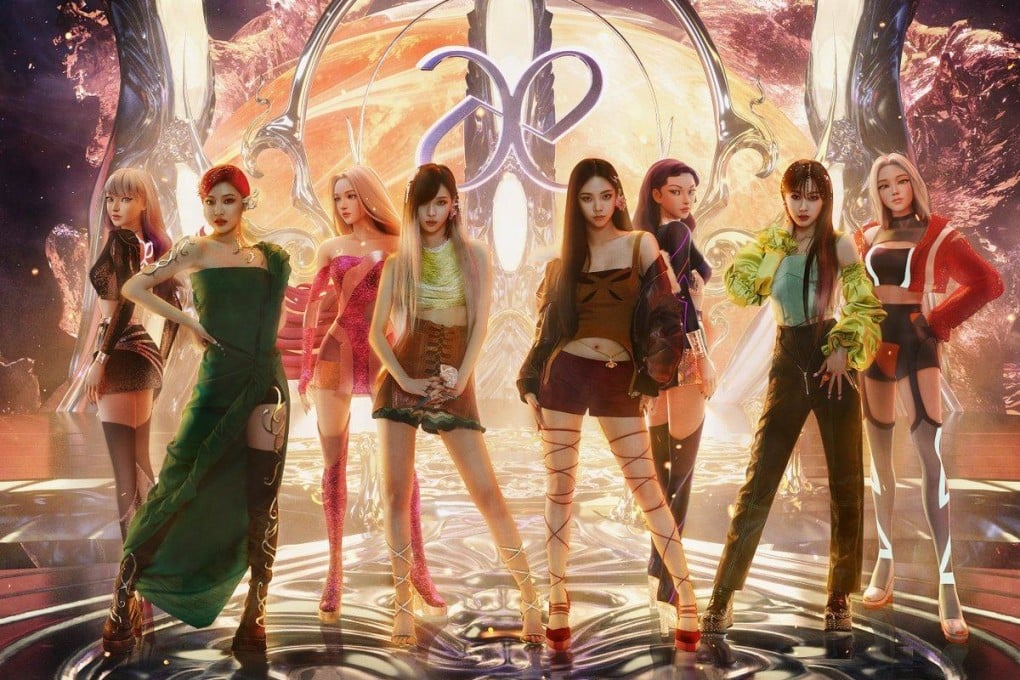K-pop’s virtual future: Aespa, Eternity, the rise of digital performers and the AI technology that allows stars to perform as avatars
- K-pop group Aespa, which has both physical and virtual members, had one of the biggest hits so far this year
- Eternity are an 11-piece virtual girl group created using AI technology from a start-up, Pulse9

Aespa are far from the only K-pop act to incorporate virtual avatars in their musical projects. On March 22, an 11-member girl group, Eternity, released their single I’m Real. Eternity is said to be the first K-pop group created using artificial intelligence (AI) – formed by the Seoul-based tech start-up Pulse9.
Pulse9’s goal is to create a virtual avatar mask of sorts for creatives who, for whatever reason, don’t or can’t show their faces on camera but still want an online personification to show the world.

While not quite lifelike, the realistic feeling is just about there when you watch the music video for I’m Real – and is real enough for some to call Eternity a “deepfake” K-pop group, evoking a term typically used when referring to pornographic content in which individuals’ faces or bodies are virtually embedded without their knowledge.